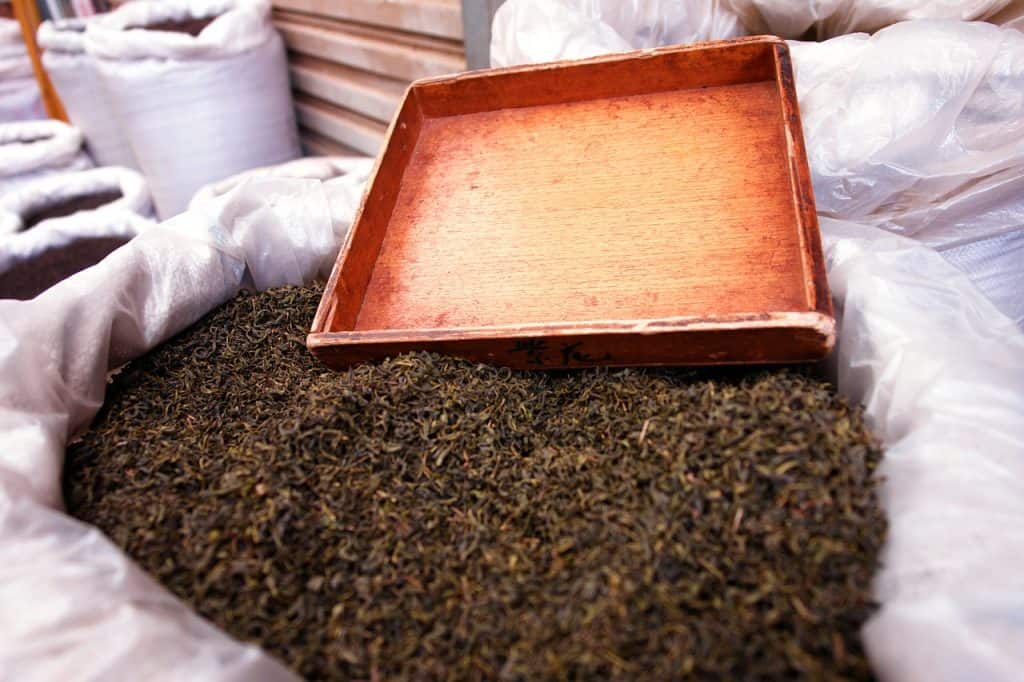Green tea boosts fat loss.
Green tea has been widely recommended for just about anything that you can think up. This liquid cure-all from the Orient is full of antioxidants and metabolism boosters. The taste takes some time to get used to it, but once you do, it can be very pleasant. The question remains: does green tea help with weight loss and maintenance?

The main active ingredients in green tea are caffeine and polyphenol catechins. Green tea is a rich source of polyphenol catechins. There are many studies that show weight loss and maintenance benefits with regular consumption of green tea and its extracts.
Research:
- Green Tea Extract: A 12 weeks study showed high-dose green tea extract resulted in significant weight loss, reduced waist circumference, and a consistent decrease in total cholesterol, and LDL plasma levels without any side effects or adverse effects in women with central obesity[1]. It is postulated that the mechanism of the high-dose green tea extract might be associated in part with ghrelin secretion inhibition, leading to increased adiponectin levels.
- Body consumption: A study of green tea with caffeine has shown statistically significant reductions in BMI, body weight, and waist circumference[2]. Another study of green tea concludes that consumption of two servings of an extra high-catechin green tea leads to improvements in body composition and reduces abdominal fatness in moderately overweight subjects[3].
- Calorie burning. Caffeine may stimulate thermogenesis (aka fat burning). This effect is probably small and isn’t enough to produce significant weight loss.
- Fat cells: A mother study shows a reduction in the formation of new fat cells with the use of green tea extract[4]. This translates into further benefits in weight maintenance.
- Caffeine: Green tea contains caffeine. One European study of caffeine consumption in weight loss and maintenance showed a correlation between successful maintenance and higher caffeine consumption[5]. The source of the caffeine, in the study, was coffee, but the results should be the same if caffeine is the causative agent.

Green tea is much clearer in its benefits for weight loss than coffee. One thing is clear; green tea is safe and well studied. It has benefits in helping you lose weight. I drink it, and it helps me have more energy and feel full longer. I might have a cup right now.
The bottom line: Green tea can assist with weight loss. It is more than just a zero-calorie drink because it increases your metabolism and promotes satiety.
References:
- [1]I. Chen, C. Liu, J. Chiu, and C. Hsu, “Therapeutic effect of high-dose green tea extract on weight reduction: A randomized, double-blind, placebo-controlled clinical trial.,” Clin Nutr, vol. 35, no. 3, pp. 592–9, Jun. 2016, doi: 10.1016/j.clnu.2015.05.003. [Online]. Available: https://www.ncbi.nlm.nih.gov/pubmed/26093535
- [2]O. Phung, W. Baker, L. Matthews, M. Lanosa, A. Thorne, and C. Coleman, “Effect of green tea catechins with or without caffeine on anthropometric measures: a systematic review and meta-analysis.,” Am J Clin Nutr, vol. 91, no. 1, pp. 73–81, Jan. 2010, doi: 10.3945/ajcn.2009.28157. [Online]. Available: https://www.ncbi.nlm.nih.gov/pubmed/19906797
- [3]H. Wang et al., “Effects of catechin enriched green tea on body composition.,” Obesity (Silver Spring), vol. 18, no. 4, pp. 773–9, Apr. 2010, doi: 10.1038/oby.2009.256. [Online]. Available: https://www.ncbi.nlm.nih.gov/pubmed/19680234
- [4]H. Ku et al., “Green tea (-)-epigallocatechin gallate inhibits insulin stimulation of 3T3-L1 preadipocyte mitogenesis via the 67-kDa laminin receptor pathway.,” Am J Physiol Cell Physiol, vol. 297, no. 1, pp. C121-32, Jul. 2009, doi: 10.1152/ajpcell.00272.2008. [Online]. Available: https://www.ncbi.nlm.nih.gov/pubmed/19176763
- [5]D. Icken et al., “Caffeine intake is related to successful weight loss maintenance.,” Eur J Clin Nutr, vol. 70, no. 4, pp. 532–4, Apr. 2016, doi: 10.1038/ejcn.2015.183. [Online]. Available: https://www.ncbi.nlm.nih.gov/pubmed/26554757






Be the first to comment on "Research Proven Weight Loss: Green Tea"